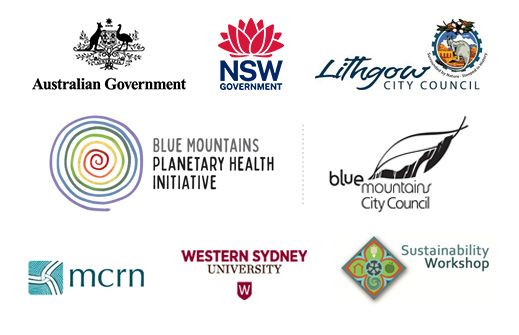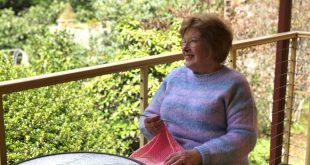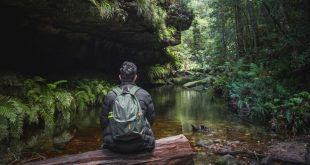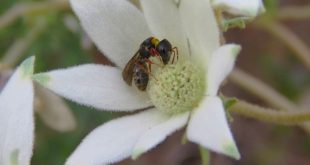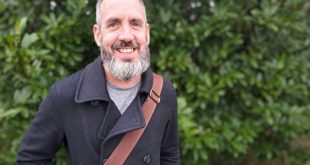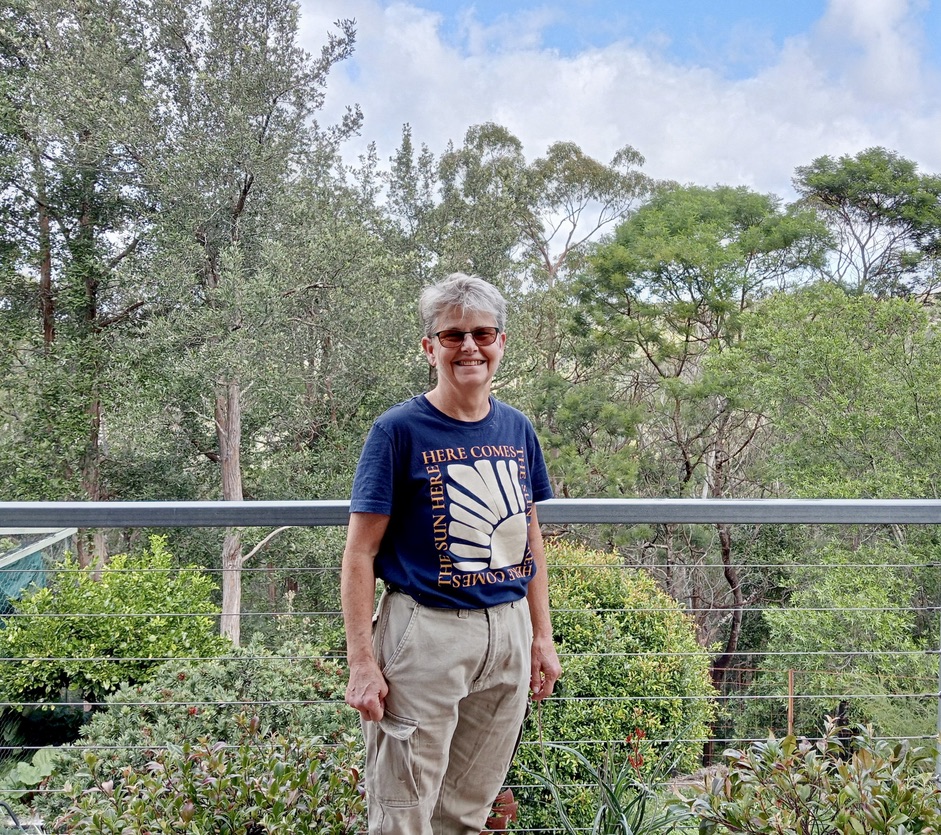
Clair on her balcony overlooking the spectacular valley
Story and photographs by Madison Roland-Evans
Wigram Road in Faulconbridge is one of those special Mountains streets that is both close to town, and on the edge of a spectacular valley. The houses are set snugly behind hedges, kids ride their bikes up and down the cul-de-sac, and neighbours know each other’s names.
Clair and Denise live in the middle of Wigram Road and their place is set apart by a bright red street library above the letterbox. They have been here for decades. “It’s a community. We care deeply about our neighbours. We had to decide when we retired whether to stay in the Mountains or to move elsewhere. And we thought, it’s a flat block and quiet street, we look after our neighbours. It’s a real community feel”. So they stayed.
“It’s always been like this,“ Clair tells me. She explains that she has the keys to some of her neighbours’ homes, and they are the emergency contacts for a few of the older Wigram residents. “On Fridays we often get takeaway and we just walk into Marie’s house to ask her what she wants.”
They realise this kind of community doesn’t happen overnight. It builds slowly from shared experiences, both the good and the bad. In fire seasons, they’re out there helping each other clear out gutters, and making sure the pumps and tanks underneath balconies are working, in case a hose needs to be connected. At other times they’re sharing meals, chats, and watching the Wigram kids grow up.
For many years Clair and Denise have been part of a local working bee group. Every month they help friends with a project that’s a bit much for one household. The group makes it to their home once a year. “We’ve done fencing, painting, hedges, whatever needs doing… It’s just your own skills and everyone else giving it a go”.
Street composting
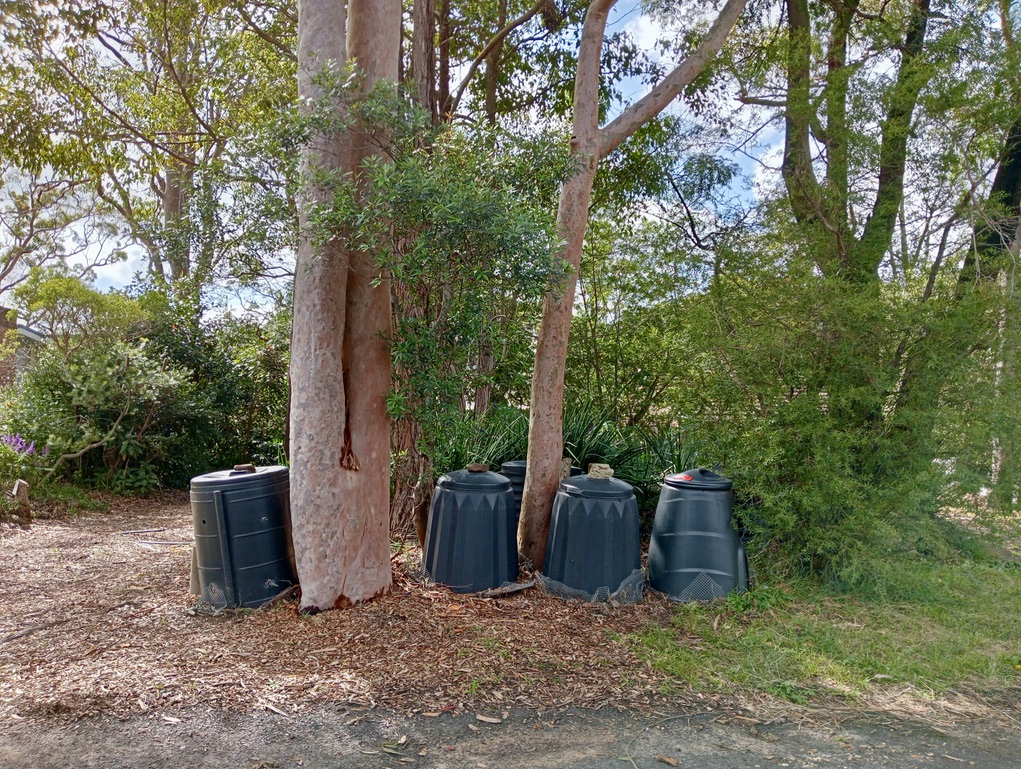
Simple, accessible and effective set up. Clair marks the lid of one bin with red tape that means “Use this one!!”
Across the road, six compost bins sit beneath some trees. Years ago, Clair signed up to be the ‘compost champion’ and Wigram Road residents know they can drop their vegetable food scraps into the bins. Clair will then see to it that it becomes rich compost.
She reminds people to include things like torn newspaper, paper towels, and other papery things to increase the carbon to nitrogen ratio (a.k.a. brown to green balance). Clair will come and stir the compost when necessary, so that the bins get enough air to keep the good microbes alive.
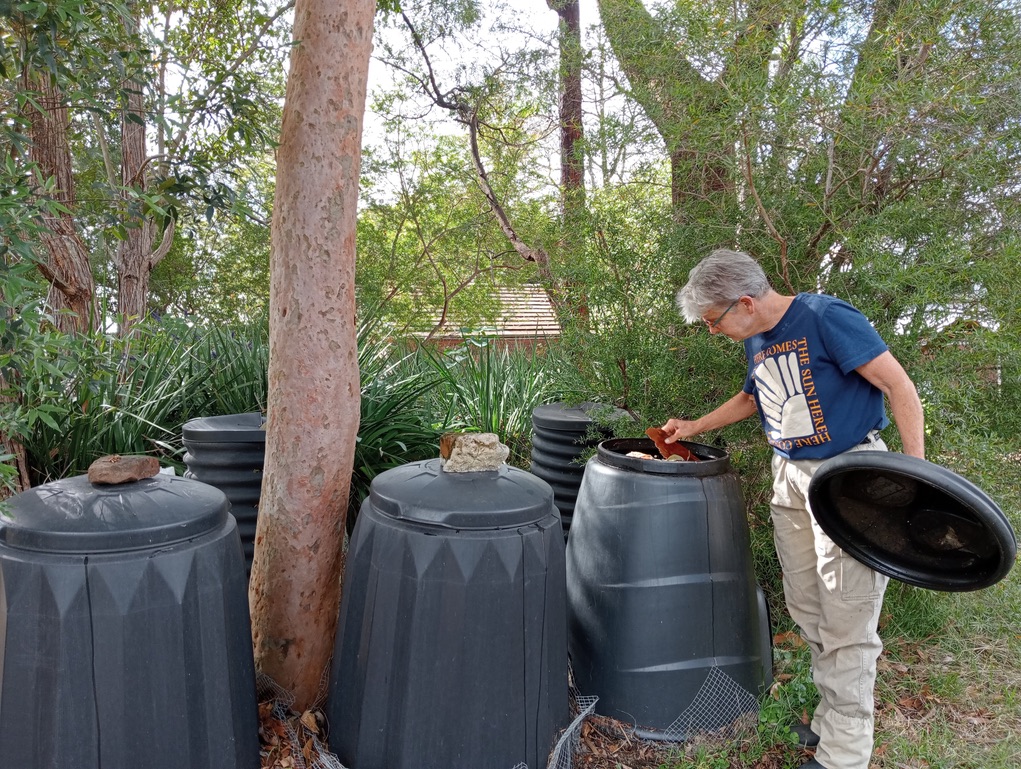
The shared compost diverts many kilos of organic matter from going to landfill, where it would decompose to produce higher levels of methane. Not every household has the time or routine to be able to manage their own compost, but we all have food scraps, so it makes sense to share. This simple act of composting reminds people of the cycle of their food, consumption, and the incredible process of decomposition.
Clair tells me that sharing simple things like this “makes people feel better” because they feel they are contributing to something. “I just believe if you can’t use it, or there’s something you love doing, and others can benefit from it, then do it”.
When the compost has worked its magic, she bags up the finished product. Contributors can take what they need for their garden. There has often been the added bonus of tomato seedlings to share, and the ever-present ‘Compost Pumpkin’ that sprouts while you’re not looking.
Clair has long been an avid gardener. Living on the edge of the valley, she is mindful of what goes into (and comes out of) her garden. With a view from the balcony out to the opposite ridge, it’s not hard to imagine the wealth of biodiversity in the bush below, giving backyard gardening a new level of significance. She is also a committed bush carer, weeding and planting in the nearby creeks and trails to make space for the local ecosystem to thrive.
Her garden features native shrubs as well as a large section for veges. Native violets cover much of the ground between larger plants, helping stabilise the mulch layer. She only ever puts compost in as feed for the plants.
Clair’s compost in the middle of the street encourages other residents to share, take what they need and to be mindful of what we put into the landscapes where we live. Bringing your kitchen scraps out into the street also connects people in a way that buying compost from the hardware store just can’t match.
A street library
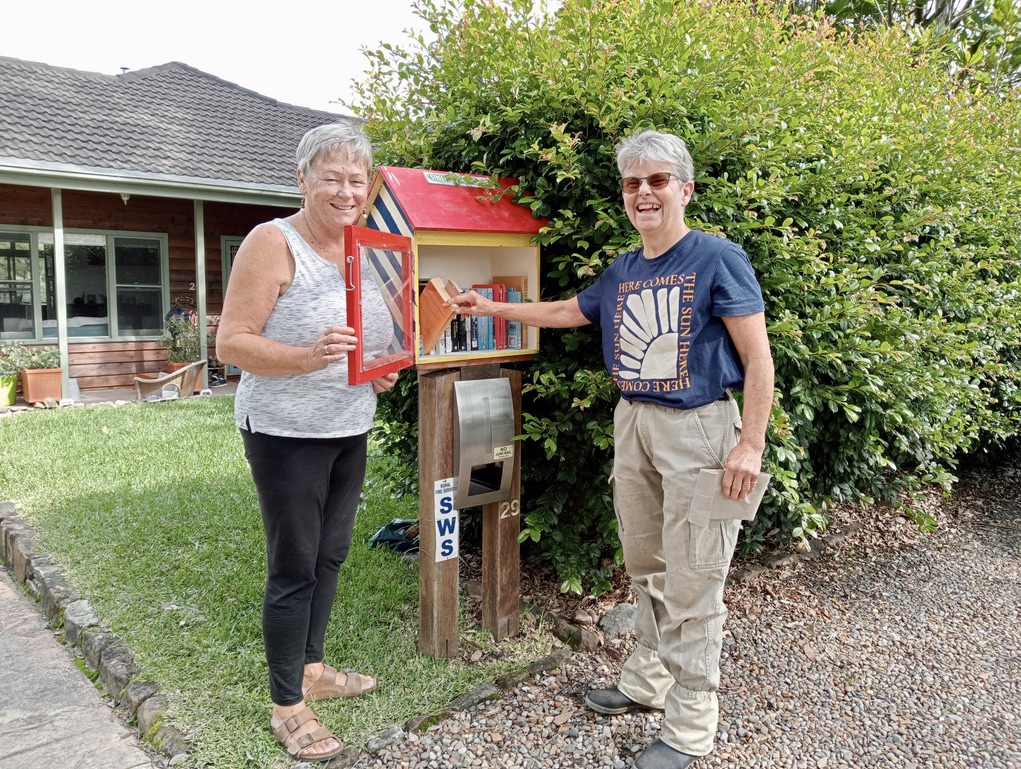
Denise and Clair with their street library
Locals give books to the street library regularly too. Neighbours walk past and swap opinions on the latest recommended read. Denise tells me how some of the local kids will sit at the base of the little library box, read and return the books, and later come back for more. “Take as many as you want!” she tells them, explaining that the little project has been a part of the process of learning about sharing resources amongst the street.
“That’s what living in the mountains means to me,” Clair says, “In my opinion, community is what makes the world go round”.
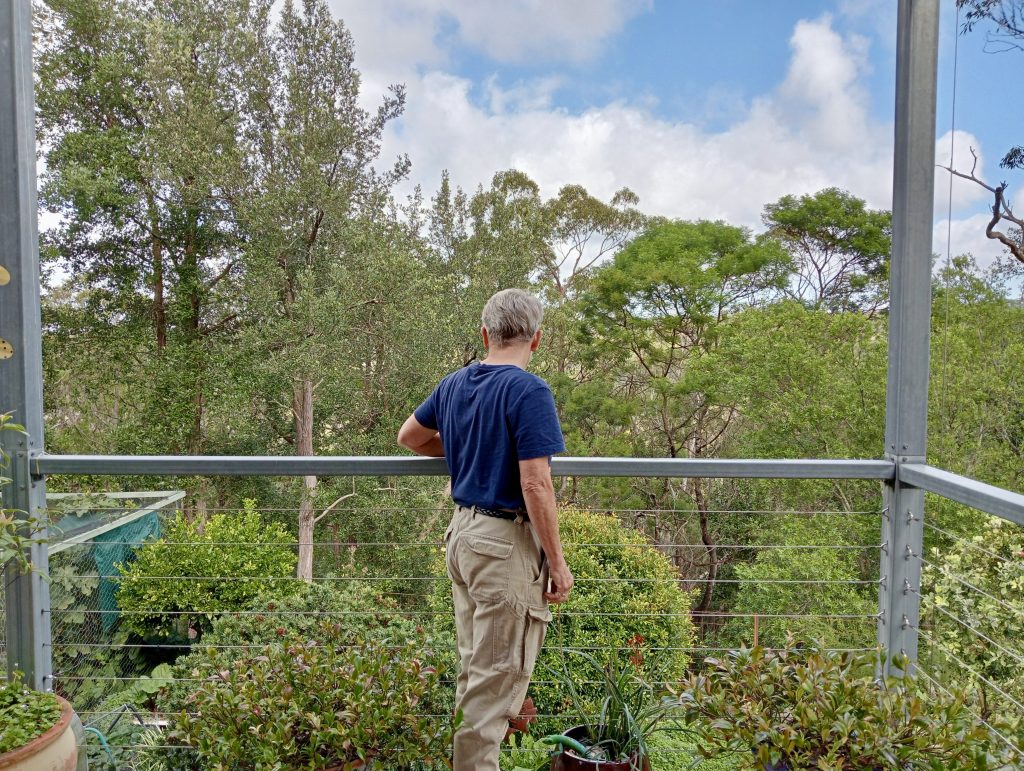
Start your own shared compost
There are 243 ‘Compost Hubs’ in the Blue Mountains area. You can find one near you on the map here: https://yoursay.bmcc.nsw.gov.au/composthub, or start one yourself and get your neighbours involved!
There is a lot of information out there about different techniques. If you’re wondering where to get started, try these great introductory resources:
Read Compost Revolution’s info sheet https://compostrevolution.com.au/australia-wide/tutorial/composting/1/
Watch Good Life Permaculture’s Hannah Moloney, this is one of the best video tutorials we’ve come across:
This story has been produced as part of a Bioregional Collaboration for Planetary Health and is supported by the Disaster Risk Reduction Fund (DRRF). The DRRF is jointly funded by the Australian and New South Wales governments.
